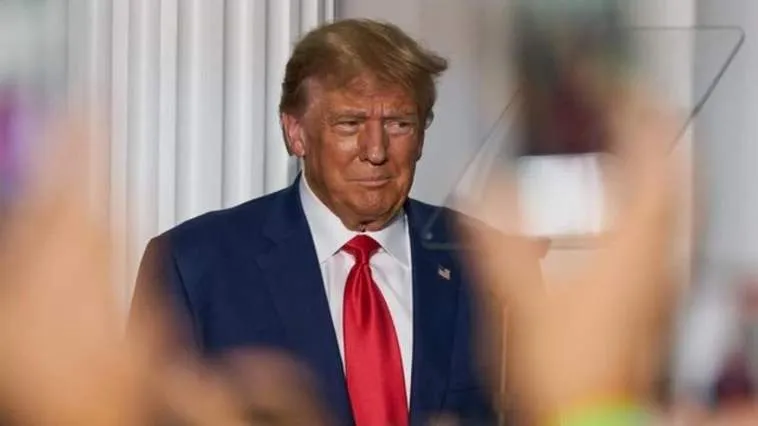(CBS News) The first-ever federal and state indictments of a former president — and one who is running for the office again — have raised legal questions around whether a president may pardon himself.
Neither trial is underway yet, but in the federal case, former President Donald Trump faces 37 serious charges as he leads a crowded field for the 2024 Republican presidential nomination.
“The big unanswered question is whether the president might be able to pardon himself,” Jeffrey Crouch, an assistant professor of American politics at American University and an expert on executive clemency. “No president has ever tried it, so we don’t know what the result would be if it was attempted.”
The Constitution gives the president broad power to pardon federal crimes, except in cases involving impeachment. The president also can’t pardon state offenses. Apart from that, in explicit terms, the Constitution is quiet. And history and precedent don’t offer significant insight, says Harvard constitutional scholar Mark Tushnet.
“The arguments about whether a president can pardon himself are not only unsettled in the sense that they haven’t come up before, but they’re also unsettled in the sense that reasonable lawyers could look at the materials and say either result is legally defensible,” Tushnet said.
One thing that’s “settled” in law is that a pardon “has to be for something that the recipient of the pardon has already done,” said Brian Kalt, a professor at Michigan Law School who wrote about the possibility of self-pardons in 2008. “You can’t pardon future acts.”
However, the presidential pardon may be used if the acts have taken place, even if the courts have not yet taken action, the Supreme Court ruled in 1866.
The president’s pardon power “extends to every offence known to the law, and may be exercised at any time after its commission, either before legal proceedings are taken or during their pendency, or after conviction and judgment,” the high court ruled.
In 2020, just before he left office, Trump, according to the New York Times, considered granting himself, as well as his family and allies, preemptive pardons, arguing his political opponents would use the courts to go after him after he left office. Those discussions took place before the Jan. 6, 2021, Capitol riot that is the subject of the other special counsel investigation of Trump, and the Times reported that it was not clear whether Trump talked about it again afterward.
During the federal Constitutional Convention held in Philadelphia in 1787, Edmund Randolph, of Virginia, wanted to make an exception to the vast presidential pardon powers proposed for treason. Randolph feared a president could be involved in a treasonous plot, directing his allies to carry out a conspiracy. But founder James Wilson, who later became a Supreme Court justice, argued that if a president is a party to treason, he could be impeached and removed, and then prosecuted. Wilson’s thinking ultimately prevailed.
Kalt believes the founders either thought a self-pardon was untenable, or never considered it.
“They must have thought he couldn’t do it, or possibly they just didn’t think of it at all,” Kalt said.
During the Watergate scandal, as President Richard Nixon faced the possibility of prosecution and political exile, he asked his lawyers what his options were, and one of the options presented was a self-pardon.
“It was sort of saying, ‘We think you can do this. Whether you should is another question but we think you can,'” Kalt summarized.
“At the same time, the Department of Justice, the ones who would have been prosecuting Nixon, were working up a memo and they said that he couldn’t,” Kalt said.






